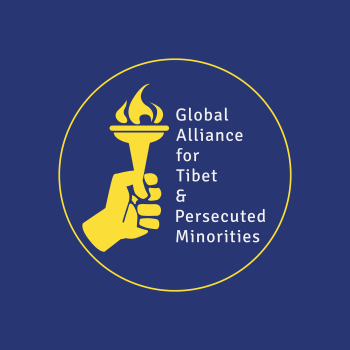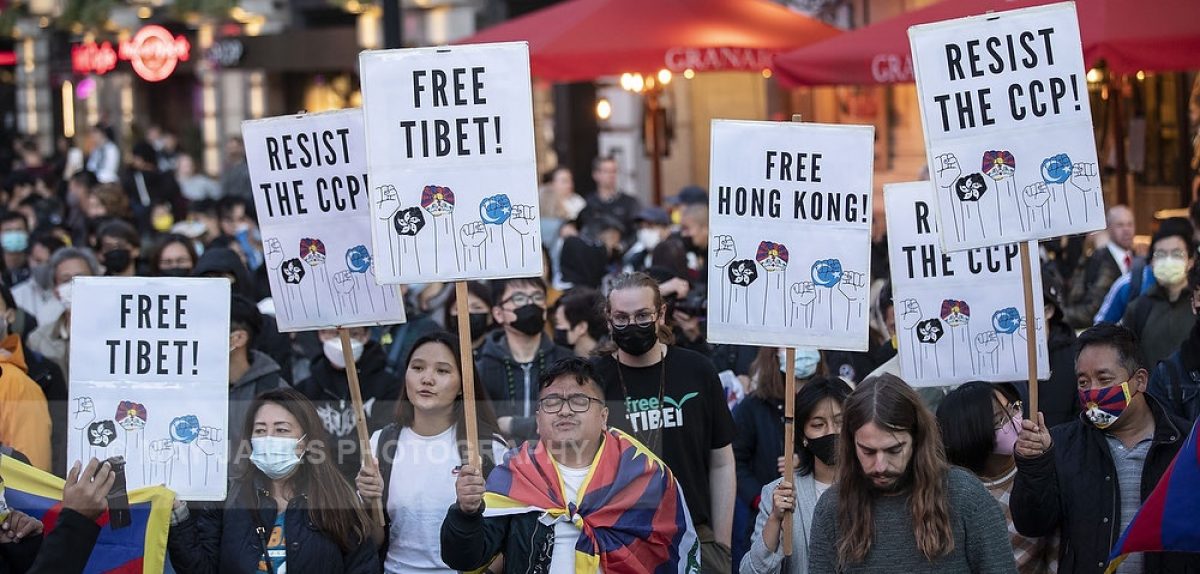
In its latest 2021 Country Reports on Human Rights Practices, which was released on 12th April 2022, the US State Department once again highlighted that “Genocide and crimes against humanity occurred during the year against predominantly Muslim Uyghurs and members of other ethnic and religious minority groups in Xinjiang.” After Mao Tsetung came to power in 1949, East Turkestan (Ch: Xinjiang Uyghur Autonomous Region) was invaded by the People’s Republic of China.
After the US State Department released the latest report, Dharamsala-based Central Tibetan Administration filed a news report on its website, stating, “The report specifically highlighted the cases of Tibetan political prisoners Tenzin Nyima and Kunchok Jinpa who died after suffering severe beatings in prison; the forced disappearance of the 11th Panchen Lama, the arbitrary arrest of Derung Tsering Dhundrup in 2019, Go Sherab Gyatso in 2020, Konmay in 2021, the denial of fair trial to four Tibetan monks from the Tengro Monastery in 2020, and the extrajudicial sentencing of Tibetan writers including Dhi Lhaden, among others. The report also noted the harsh prison conditions in Tibet including inadequate sanitary conditions and medical care as well as denial of visitation rights including attorney to the prisoners.”
The Global Alliance for Tibet and Persecuted Communities (GATPM) welcomes this latest Country Reports on Human Rights Practices by the US State Department. China’s ongoing gross violations of human rights as well as its crimes against humanity must be exposed and held accountable. As the leader of the free world the United States has done a remarkable job by releasing this latest Country Reports on Human Rights Practices.
For full links to the relevant sections, please see the bottom of the Executive Summary:
EXECUTIVE SUMMARY
The People’s Republic of China is an authoritarian state in which the Chinese Communist Party is the paramount authority. Communist Party members hold almost all top government and security apparatus positions. Ultimate authority rests with the Communist Party Central Committee’s 25-member Political Bureau (Politburo) and its seven-member Standing Committee. Xi Jinping continued to hold the three most powerful positions as party general secretary, state president, and chairman of the Central Military Commission.
The main domestic security agencies include the Ministry of State Security, the Ministry of Public Security, and the People’s Armed Police. The People’s Armed Police continue to be under the dual authority of the Central Committee of the Communist Party and the Central Military Commission. The People’s Liberation Army is primarily responsible for external security but also has some domestic security responsibilities. Local jurisdictions also frequently use civilian municipal security forces, known as “urban management” officials, to enforce administrative measures. Civilian authorities maintained effective control of the security forces. There were credible reports that members of the security forces committed serious and pervasive abuses.
Genocide and crimes against humanity occurred during the year against predominantly Muslim Uyghurs and members of other ethnic and religious minority groups in Xinjiang. These crimes were continuing and included: the arbitrary imprisonment or other severe deprivation of physical liberty of more than one million civilians; forced sterilization, coerced abortions, and more restrictive application of the country’s birth control policies; rape; torture of a large number of those arbitrarily detained; forced labor; and draconian restrictions on freedom of religion or belief, freedom of expression, and freedom of movement.
Significant human rights issues included credible reports of: arbitrary or unlawful killings by the government; forced disappearances by the government; torture by the government; harsh and life-threatening prison and detention conditions; arbitrary detention by the government, including the mass detention of more than one million Uyghurs and members of other predominantly Muslim minority groups in extrajudicial internment camps and an additional two million subjected to daytime-only “re-education” training; political prisoners; politically motivated reprisal against individuals outside the country; the lack of an independent judiciary and Communist Party control over the judicial and legal system; arbitrary interference with privacy including pervasive and intrusive technical surveillance and monitoring; punishment of family members for offenses allegedly committed by an individual; serious restrictions on free expression and media, including physical attacks on and criminal prosecution of journalists, lawyers, writers, bloggers, dissidents, petitioners, and others as well as their family members; serious restrictions on internet freedom, including site blocking; substantial interference with the freedom of peaceful assembly and freedom of association, including overly restrictive laws that apply to foreign and domestic nongovernmental organizations; severe restrictions and suppression of religious freedom; substantial restrictions on freedom of movement; refoulement of asylum seekers to North Korea, where they have a well founded fear of persecution, including torture and sexual violence; the inability of citizens to choose their government peacefully through free and fair elections; serious restrictions on political participation; serious acts of government corruption; forced sterilization and coerced abortions; trafficking in persons, including forced labor; violence targeting members of national, racial, and ethnic minority groups; severe restrictions on labor rights, including a ban on workers organizing or joining unions of their own choosing; and child labor.
Government officials and the security services often committed human rights abuses with impunity. Authorities often announced investigations following cases of reported killings by police but did not announce results or findings of police malfeasance or disciplinary action. Enforcement of laws on corruption was inconsistent and not transparent, and corruption was rampant.
For full report on China, please click here.
For Tibet section, please click here.
For Hong Kong section, please click here.
For Macao section, please click here.

